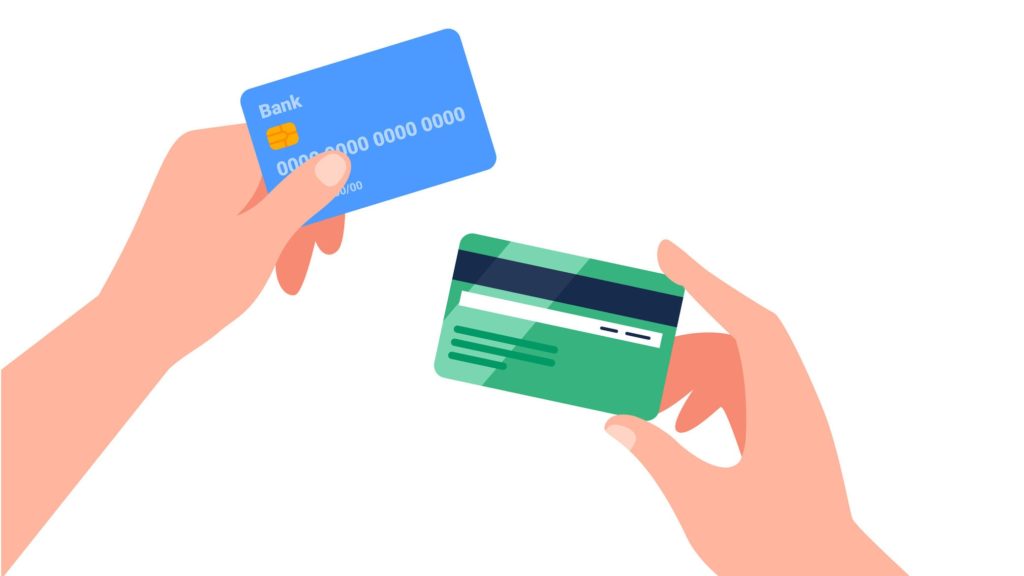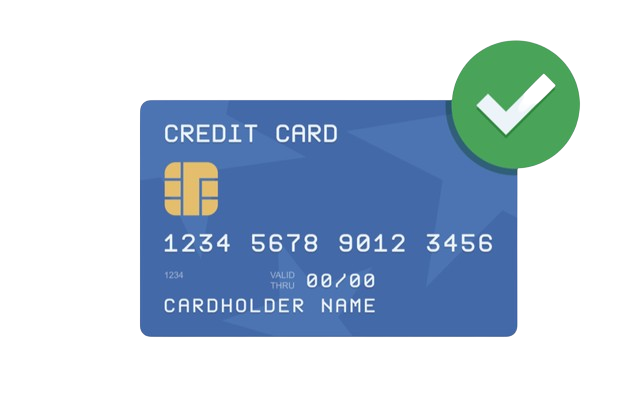Credit card authorization: What it is and how it works [2024]
Last updated on January 17th, 2024 in General

Have you ever wondered how your credit card transactions get authorized? It’s a fascinating process that happens in the blink of an eye, ensuring secure and seamless payments. Whether you’re swiping your card at a store or making an online purchase, credit card authorization plays a crucial role in keeping your financial information safe.
In this blog post, we’ll dive into the world of credit card authorization – what it is, how it works, and why it matters. So grab your favorite beverage and let’s unravel the mysteries behind this essential aspect of modern-day commerce!
Table of Contents
 When it comes to credit card authorization, there are various types that businesses and merchants can choose from. Each type offers different features and benefits depending on specific needs and requirements. Let’s take a closer look at some common types of credit card authorizations.
When it comes to credit card authorization, there are various types that businesses and merchants can choose from. Each type offers different features and benefits depending on specific needs and requirements. Let’s take a closer look at some common types of credit card authorizations.
1. Pre-Authorization: This type allows the merchant to verify if the cardholder has sufficient funds before processing a transaction. It is commonly used in industries where services are rendered over time or when products need to be reserved for future purchases.
2. Offline Authorization: In situations where an internet connection may not be available, offline authorization comes into play. The merchant captures the customer’s payment information and processes it later when online connectivity is restored.
3. Recurring Billing Authorization: This type is ideal for businesses that offer subscription-based services or recurring payments such as gym memberships or monthly utility bills. The cardholder provides consent for automatic charges on a regular basis without needing to authorize each individual transaction.
4. Card Not Present (CNP) Authorization: As the name suggests, CNP authorization occurs when the physical presence of the credit card is not required during a transaction, typically in online or phone purchases. Merchants must adhere to additional security measures to mitigate fraud risks associated with this type of authorization.
5. Contactless Payment Authorization: With advancements in technology, contactless payment methods have gained popularity among consumers worldwide. This type enables customers to make quick transactions by simply tapping their cards or mobile devices against compatible payment terminals.
Understanding these different types of credit card authorizations empowers businesses and merchants to select the most suitable method based on their specific needs and preferences.
The process of credit card authorization is a crucial step in ensuring secure and reliable transactions. When a customer makes a purchase using their credit card, the merchant needs to verify that the transaction is legitimate and authorized by the cardholder.
When a customer presents their credit card for payment, the merchant initiates an authorization request. This request is sent to the issuing bank or financial institution that issued the credit card. The bank then reviews various factors such as available funds, account status, and any potential fraud alerts before granting or denying authorization.
Next, once the issuer receives the authorization request, they validate the information provided by comparing it with data stored in their system. They check if there are sufficient funds available in the account and whether it meets all security requirements.
If everything checks out successfully during this verification process, then an approval code is generated by both parties involved—the issuing bank and the acquiring bank (the one that provides services to merchants). This approval code confirms that there are no issues with the transaction at hand.
After receiving this approval code from their acquiring bank’s payment processor or gateway software solution provider (such as Stripe or PayPal), merchants can complete the transaction securely knowing they have received proper authorization from both banks involved.
Understanding how credit card authorizations work helps ensure smooth and seamless transactions between customers and merchants while maintaining robust security measures throughout every step of the process.
 When it comes to accepting payments online, credit card authorization systems offer a multitude of benefits for businesses. These systems provide a secure and efficient way to process transactions, ensuring that both the merchant and the customer are protected.
When it comes to accepting payments online, credit card authorization systems offer a multitude of benefits for businesses. These systems provide a secure and efficient way to process transactions, ensuring that both the merchant and the customer are protected.
One major advantage of using credit card authorization systems is enhanced security. These systems use advanced encryption technology to protect sensitive customer data, making it virtually impossible for hackers or fraudsters to access personal information. This not only gives customers peace of mind but also helps businesses build trust with their clientele.
Another benefit is the speed and convenience these systems bring to the table. With credit card authorization, transactions can be processed in real-time, allowing businesses to receive payment instantly. This eliminates the need for manual processing or waiting for checks to clear, saving time and streamlining operations.
Furthermore, credit card authorization systems offer increased flexibility in accepting different types of payments. Whether it’s traditional magnetic stripe cards or newer contactless options like Apple Pay or Google Wallet, these systems can accommodate various payment methods, giving customers more choices and increasing sales opportunities for merchants.
Additionally, implementing a credit card authorization system can help reduce chargebacks and disputes. By verifying each transaction before approval is granted, merchants can prevent fraudulent activity from occurring in the first place. This proactive approach minimizes financial losses associated with chargebacks while maintaining customer satisfaction.
Integrating a credit card authorization system into your business allows you to gain valuable insights through detailed reporting features. Merchants can easily track sales trends and analyze customer behavior patterns based on purchase history data provided by these systems. This information proves invaluable when making strategic decisions about inventory management or marketing campaigns.
Credit card authorization is widely used, but it still raises concerns and misconceptions among consumers. One common concern is the security of personal information. Many worry that providing their credit card details for authorization puts them at risk of identity theft or fraud.
However, it’s important to note that credit card authorization systems are designed with robust security measures in place. They use encryption technology to protect sensitive data during transmission, ensuring that your information remains secure.
Another misconception about credit card authorization is that it takes a long time to process transactions. While there may be occasional delays due to system maintenance or connectivity issues, most authorizations happen almost instantaneously. This allows for seamless and efficient transactions, making the payment process quick and convenient.
Some people also believe that using credit cards for online purchases increases their chances of falling victim to scams or unauthorized charges. However, reputable e-commerce platforms have stringent security protocols in place to prevent fraudulent activities. Additionally, most credit card companies offer zero-liability policies that protect consumers from unauthorized charges if they report them promptly.
This is one of the reasons we advise you to use VPN to help enhance the protection against credit card details highjacking.
Furthermore, some individuals fear that their credit limit might be exceeded when making large purchases through credit card authorization. However, merchants typically obtain pre-authorization from the issuing bank before processing such transactions. This helps ensure that you have sufficient available funds or credit limit before completing the purchase.
The future of credit card authorization holds exciting possibilities for both consumers and businesses alike. As technology continues to advance at a rapid pace, we can expect to see major advancements in the way credit card transactions are authorized.
One area that shows promise is biometric authentication. With the rise of smartphones equipped with fingerprint scanners and facial recognition technology, it’s only a matter of time before these features are integrated into credit card authorization systems. Imagine being able to simply place your finger on your phone or look at the camera to verify your identity when making a purchase – it would certainly make transactions faster and more secure.
Another trend on the horizon is tokenization. This involves replacing sensitive payment information, such as credit card numbers, with unique tokens that have no value outside of specific transactions. By using tokens instead of actual account numbers, merchants can greatly reduce the risk of data breaches and fraud.
Furthermore, artificial intelligence (AI) has already made its way into various industries, including finance. AI-powered algorithms can analyze vast amounts of data in real-time to detect patterns and anomalies that may indicate fraudulent activity. This could help prevent unauthorized transactions before they even occur.
Additionally, blockchain technology has gained attention for its potential applications in financial services. Blockchain provides a decentralized ledger system that offers increased transparency and security for transactions. While still in its early stages within the realm of credit card authorization, this technology could revolutionize how payments are processed.
It’s important to note that while these innovations hold great promise for improving credit card authorization systems, there will always be challenges and concerns to address along the way – such as privacy issues surrounding biometrics or potential vulnerabilities in new technologies.
In today’s fast-paced and increasingly digital world, credit card authorization plays a crucial role in ensuring secure and efficient transactions. We have explored the different types of credit card authorizations, the process involved in authorizing a transaction, and the benefits it brings to both merchants and consumers.
Credit card authorization systems provide a layer of protection against fraudulent activities by verifying the validity of each transaction. By implementing robust security measures such as encryption and tokenization, sensitive financial information is safeguarded from potential threats.
As businesses continue to adapt to changing consumer demands and evolving payment methods like mobile wallets and contactless payments become more prevalent, the need for secure credit card authorization systems will only increase. Merchants must stay vigilant with regular updates to their software infrastructure to maintain compliance with industry standards.
Credit card authorization serves as a vital component of modern-day commerce. With its ability to ensure secure transactions quickly and efficiently while offering peace of mind for both merchants and consumers alike,it has revolutionized how we conduct business globally. As technology continues advancing at an unprecedented pace, the future holds immense possibilities for even stronger safeguards against fraudulent activities, making online shopping safer than ever before!